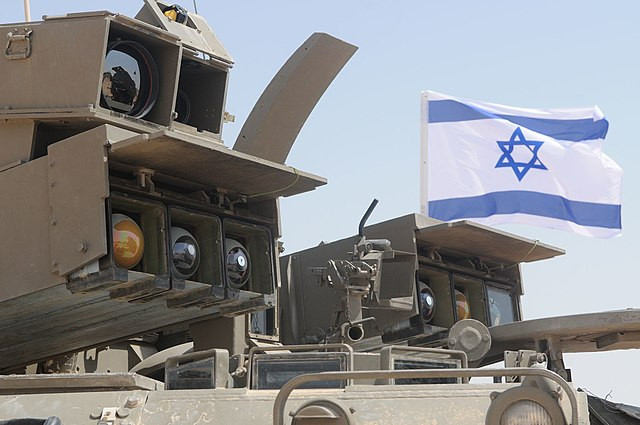The conflict between Israel and Hezbollah escalated on Wednesday as Israel intercepted a missile fired by the Iran-backed group, marking the first such attack aimed at Tel Aviv. Hezbollah claimed the missile targeted the Mossad spy agency's headquarters, an unprecedented move in the long-standing tensions between the two adversaries. The missile, intercepted by Israel's air defense systems, caused no injuries, but the incident underscores the growing danger of a broader regional conflict.
The missile, a Qadr 1 ballistic missile, was launched from southern Lebanon, marking a significant escalation in Hezbollah's military capabilities. While Hezbollah declared it was retaliating for Israeli strikes and supporting Palestinians in Gaza, Israeli military officials, including spokesperson Nadav Shoshani, refuted Hezbollah's claim about the Mossad headquarters, confirming that the missile was headed toward a civilian area. Shoshani noted that it was the first time Hezbollah had fired at Tel Aviv, a densely populated city of over 4 million residents.
This incident comes amid a series of aggressive military exchanges between Israel and Hezbollah. Israeli warplanes launched multiple airstrikes targeting Hezbollah positions in southern Lebanon and the Bekaa Valley. These strikes reportedly hit more than 60 Hezbollah-related targets, including intelligence facilities and command centers. Lebanon's Health Ministry confirmed that at least 23 people were killed in these airstrikes.
#BREAKING After #Lebanon 's #Hezbollah announced that it had launched a ballistic missile into #Israel . The Israeli army announced that it had successfully intercepted the missile in the vicinity of Tel Aviv and subsequently deployed warplanes to strike the missile launcher.… pic.twitter.com/W7Z10KUHHP — Abdul khabir jamily (@JamilKhabir396) September 25, 2024
The increased military activity on both sides has heightened concerns of a broader regional war. The United States has been closely monitoring the situation, as fears grow that the conflict between Israel and Hezbollah could spread, drawing in other regional powers like Iran. With U.S. officials working to broker a ceasefire, the potential for a larger conflict remains, particularly given Hezbollah's sustained rocket fire into northern Israel.
Hezbollah, for its part, has fired hundreds of rockets and drones into Israel over the past year, with attacks intensifying since October's deadly Hamas assault on Israel. The cross-border exchanges have displaced tens of thousands in both Lebanon and Israel, with the Israeli military confirming that around 60,000 people have been evacuated from northern Israel.
In addition to Hezbollah's missile strike, the Israeli Defense Forces (IDF) faced around 40 projectiles fired from Lebanon into northern Israel on Wednesday. One of these rockets hit an assisted living facility, though no injuries were reported. In retaliation, Israeli strikes in southern Beirut killed several Hezbollah commanders, including senior missile unit commander Ibrahim Qubaisi.
The escalation follows the deadliest day in Lebanon in nearly two decades. Israeli airstrikes on Monday killed over 500 people, including children, prompting humanitarian concerns from organizations like UNICEF. Hospitals in Lebanon are now overwhelmed, struggling to treat thousands of wounded as civilians flee the conflict zones.
International attention is focused on the deteriorating situation in Lebanon, with warnings from the UN and other agencies about the humanitarian crisis unfolding. UNICEF's Deputy Representative for Lebanon, Ettie Higgins, emphasized the gravity of the situation, stating that more children were killed in one day than in the entire past year.
As Israel vows to continue its offensive against Hezbollah, the potential for ground combat in Lebanon looms. Israeli troops have begun exercises simulating combat scenarios, signaling that an invasion into Lebanese territory remains on the table.
With no end to the conflict in sight and diplomatic efforts yet to yield a ceasefire, the region teeters on the edge of a larger war, one that could draw in neighboring countries and exacerbate an already dire humanitarian situation.




